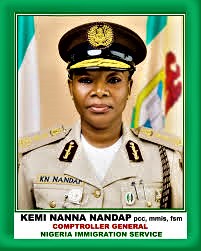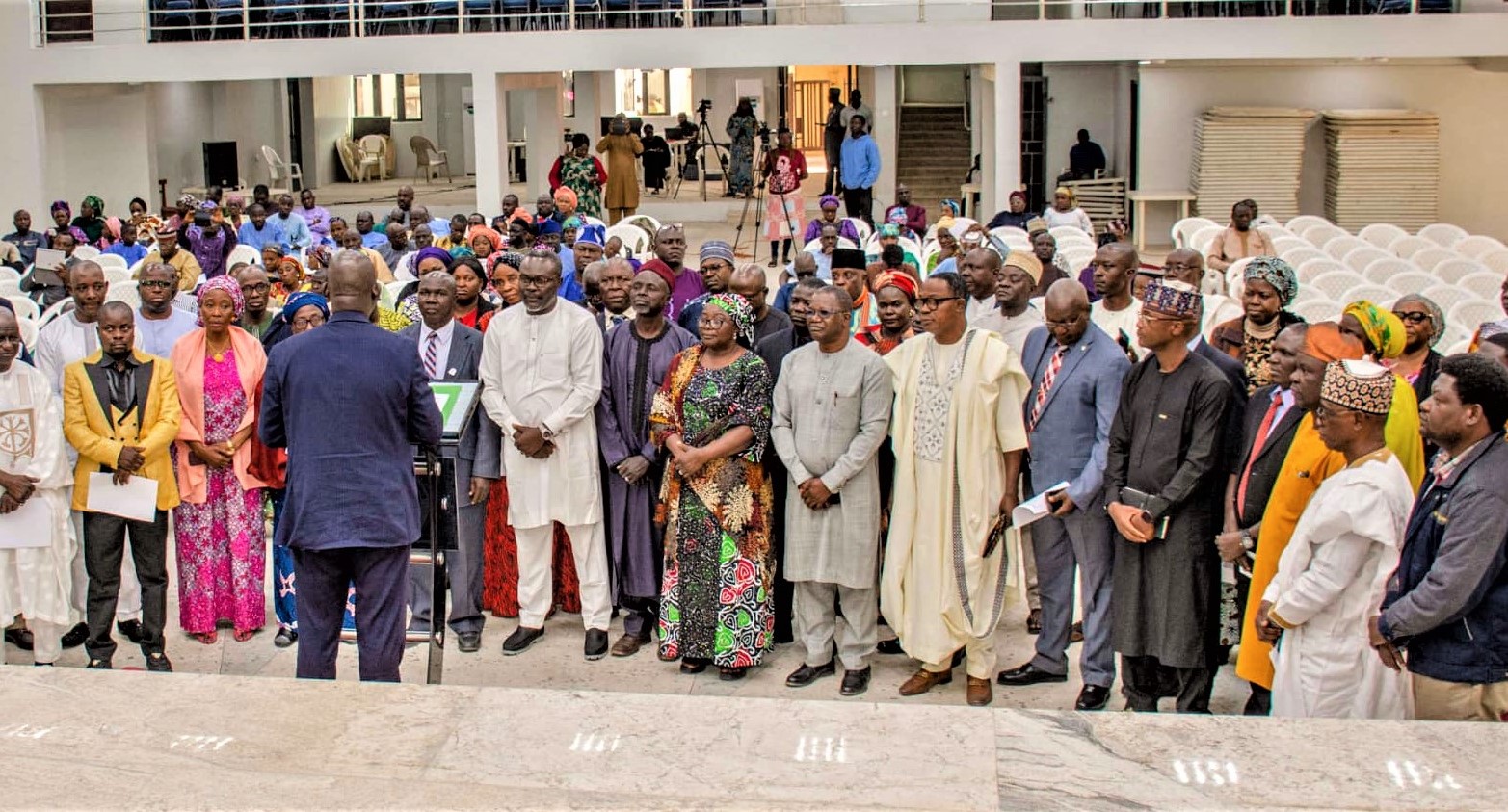The Mai Tangale Stool and Governor Yahaya’s Islamization/Fulanisation Script

“The Sultan of Sokoto is said to have made a remark regarding the presence of such Christians like Michael Audu Buba in the [Northern] regional cabinet … ‘Sardauna mai mutane, to, me ya hada Audu da Michael?’ (Sardauna, a man of the people, otherwise, what is the relationship between Michael and Audu?) Yet, while being so ecumenical, the descendants of Dan Fodio’s caliphate have never for once lost sight of their perceived superiority over people whom they consider are, in the final analysis, meant to serve them.…”
-Matthew Hassan Kukah, Religion, Politics & Power in Northern Nigeria.
Sometime in February 2021, the stool of the Mai Tangale, the paramount ruler of the Tangale people in Billiri Local Government Area of Gombe State, became vacant. This followed the demise of its erstwhile occupant, His Royal Highness, Abdu Buba Maisheru II. Going by the law, customs and tradition of the Tangale people, the Tangale Traditional Council kingmakers conducted election to select a successor to the departed monarch.
The contest was among three candidates: Dr. Musa Idris Maiyamba, Ahmed Magaji and Danladi Maiyamba. Out of 9 votes the first candidate, Dr. Musa Idris Maiyamba, received 5 and the balance of 4 votes was evenly shared between the other two candidates, Ahmed Magaji and Danladi Maiyamba. This result was in spite of alleged attempts by people in high places to financially compromise the kingmakers in favour of the Establishment’s preferred candidate – Danladi Maiyamba, a Muslim. It should be noted that 80-90% of Tangale people are Christians.
As far as the kingmakers and the people of the chiefdom were concerned, it was a given that Dr. Musa Idris Maiyamba was their new chief, having won the election overwhelmingly by 70% of the votes. Jubilation and celebratory chants filled the air. The people were happy that Dr. Maiyamba, a man in whom they were well-pleased, had become their ruler. Or had he?
The result of the election was forwarded to the Gombe State Governor, Alhaji Inuwa Muhammad Yahaya, for ratification. The people waited with bated breath because of the undue delay in announcing the new Mai Tangale by the governor. He was in a quagmire: the crass injustice of picking a candidate with 2 votes against the one with 5 stared him menacingly in the face. This ostensibly accounted for the delay in making the announcement. Perhaps His Excellency needed to consult higher authorities for guidance. After several days, during which suspicion of a sinister plot began to ensue, the governor eventually announced Danladi Maiyamba as the Mai Tangale. This decision defied logic and common sense.

Feeling shortchanged and betrayed by the governor’s utterly insensitive decision, the people reacted in spontaneous protests. There were allegations of destruction of property in the course of the protests. This, of course, did not go down well with the governor and other people.
Let it be said in no uncertain terms that no sane person would support lawlessness or wanton destruction of property for whatever cause. Such a course of action cannot be called right. It is wrong. In all times and climes dialogue is and has always remained the only veritable means of sorting out disagreements among people of good will; provided that the right atmosphere is provided for reasonable discourse between parties involved.
Having so said, it must also be pointed out that in spitefully ignoring the wishes of the Tangale people as expressed through the votes of the kingmakers, Governor Yahaya was merely acting out the script written by the northern Fulani Islamists for entrenching and perpetuating their rule over non-Muslim communities. Their mindset seems to be: Where there is no Fulani among the candidates to any office – whether it be traditional, political, public service, etc. – any Muslim would do.
Thus, although acting under a law – Gombe Emirate and Chieftaincy Law – that seeks the expression of democratic values and social mores by providing for election of emirs and chiefs through kingmakers, governors like Alhaji Inuwa Muhammad Yahay never by any chance hold the scales of justice even where a Muslim and non-Muslim are involved. Whatever the cost, Islam and the Fulani quest for dominance must be preserved and pursued.
This mission of the Fulani and Islamisation predates colonial times, but was firmed up by the British colonialists. The colonial administration foisted Fulani and Islamic rule on Nigeria – but more particularly the so-called ‘minorities’ of the Middle Belt – not only for ease of governing the diverse ethnic groups through the indirect rule system encapsulated in Lord Lugard’s administrative manual, Dual Mandate; but also because they shared a so-called ‘blue blood’ heritage. According to Lugard, “The Fulani of Northern Nigeria are … more capable of rule than the indigenous races. … I believe myself that the future of the virile races of this Protectorate lies largely in the regeneration of the Fulani. … This then is the policy: to regenerate this capable race and mould them … so that they may become worthy instruments of rule. My desire to utilise the Fulani as rulers has been described in my former report.” (Lugard, 1923:198; ARNN, 1901-11:84. Quoted by Turaki, Y., Tainted Legacy: Islam, Colonialism & Slavery in Northern Nigeria, McLean: Isaac, 2010, p. 189.)
Prof. Yusufu Turaki tells us that in non-Muslim territories like Kagoro, Tivland, Idoma, Jukun, Jaba, Moroa, and other tribes in the Plateau and Tangale-Waja, the British administration “made extensive use of Fulani and Hausa agents to develop indigenous administration [often referred to as ‘Pagan Administration’] in these districts”; and that because of financial constraints, some of these areas were subordinated to the Native Authorities of stronger emirates.
Stanhope White was, from 1936 to 1954, a member of the British Colonial Administrative Service in Northern Nigeria. In his book Dan Bana: The Memoirs of a Nigerian Official, White writes that the emir and his council formed the Native Authority for the area, “and we Administrative Officers were there to guide, advise, and help, not to rule. … Thus, advising, not ruling, was the distinguishing feature of Lugard’s system of administration, known as Indirect Rule.” Concerning the attitude of the emirs to the people, he says, “We were forbidden to shake hands with any African other than the emirs as it was said the latter resented such familiarity with their subjects.” The emirs felt that subjects, particularly “pagan” subjects, must be put in their place.
When, subsequently, the people of the Middle Belt area sought to free themselves from Fulani domination and oppression through the political process, Ahmadu Bello, a Fulani prince and Premier of Northern Nigeria, was piqued. He seemed unrestrained in his anger against the idea of a Middle Belt Region, which he described as “a long slice of country running along both sides of the River Niger and Benue, with an extension to cover the Plateau and Southern Zaria.” In his autobiography, My Life, he wrote:
“It is abundantly clear that the whole movement [for the creation of a Middle Belt Region from the Northern Region] is inspired by our political opponents, who are doing their utmost to destroy the Northern Region and reduce its membership in the House of Representatives. It must never be forgotten that almost the whole of the Region as it is today, and a great deal outside of it, was ruled by my great-grand father’s family.…”
As reported in the Parrot newspaper of 12 October 1960, he would later re-emphasize this point and his resolve: “The new nation called Nigeria should be an estate of our great-grand father, Usman dan Fodio. We must ruthlessly prevent a change of power. We use the minorities in the North as willing tools and the South as a conquered territory and never allow them to rule over us and never allow them to have control over their future.”
Now, consider the crassly lopsided appointments by President Muhammadu Buhari in favour of Fulani/Muslims against Christians and followers of other religions since his first tenure to date. Situate this alongside the actions of public officials like Governor Inuwa Muhammad Yahaya. It is not difficult to understand their mission: the entrenchment of Fulani and Islamic dominion in our body politic. This is what Usman dan Fodio and his successors like Ahmadu Bello stood for all through their lives: Fulani/Muslim dominance not only in the Middle Belt but the entire Nigeria. It is what their offspring like the Gombe State governor are vigorously pursuing and implementing.
At some point, the governor denied any religious considerations in his action, arguing that religion played no part in his decision to pick Danladi Maiyamba over Dr. Musa Idris Maiyamba despite the sharp disparity in votes. In doing this, however, he did not give any reason – cogent or flimsy – for his decision. One is therefore entitled to think that there was no reason other than the fact that Danladi Maiyamba is his fellow Muslim.
Following the protests in Billiri, the governor is reported to have set up a commission of inquiry to resolve the matter. Perhaps this is as it should be – if its intent is not to hoodwink the people into accepting what is clearly a brazen exercise of executive power by the governor, buy time for tempers to cool or cow them into accepting someone they have no wish to rule over them. In an address to the people of Gombe State on 19th April 2021, the governor announced the inauguration of commission of inquiry into what he referred to as “the Billiri violent protests.”
The commission, set up under the Commission of Inquiry Law of Gombe State, has the following terms of reference:
- To find out the remote and immediate causes of the violent protests;
- To identify persons or group of persons who sponsored, procured, instigated or encouraged the violent protests and to recommend sanctions or remedial measures against such persons or group of persons;
- To receive and investigate complaints from victims or families of victims and members of the public over the violent protests;
- To make appropriate recommendations to government on measures and means of preventing future occurrence of violent protests and how to make perpetrators account for their acts; and
- To make such other or future recommendations as the Commission may deem fit within the ambit of the Law.”
Headed by retired Justice Mahmud Gurama, a Fulani Muslim from Misau in Bauchi State as chairman, the commission has 11 members. It is comforting to know that the Commission is comprised of “people of impeccable character and proven integrity” (to quote the governor’s words). This stirs the hope that the commission will conduct its assignment under the universally accepted tenets of justice, equity and fairness without fear or favour.
But let it be observed that whatever findings the commission may come up with, it would have failed in discharging its assignment if it does not deal with the result of the election conducted by the kingmakers and why the winner was not appointed the Mai Tangale by the governor. The usual explanation to issues like this is that the governor has discretion on the matter and can appoint any person whose face he happens to like. That may be the case, but it is settled that where a public official is conferred a discretion under any law, he must exercise it judiciously and judicially.
The meaning is that the official’s whims and caprices are not the yardstick for the exercise of discretion; rather, the law is the measuring rod. The law here refers to both the statute under which the official acts as well as the general principles of law. Black’s Law Dictionary states that, generally, the exercise of discretion is “bounded by the rules and principles of law, and not arbitrary, capricious, and unrestrained. [Discretion] is the equitable decision of what is just and proper under the peculiar circumstances of the particular case, guided by the spirit and principles of the law.”
Thus, where, in exercise of discretion, there is a clearly defined rule to be followed, such a rule would eliminate discretion on the part of the official concerned. In the case of the election and appointment of the new Mai Tangale, there is a clearly defined rule that must be followed. The rule is that under democratic rules and principles, the candidate with majority vote must be declared the winner of the election and installed in office. This, in fact, is the sole rule that brought Muhammadu Inuwa Yahaya to power as governor of Gombe State. He – presumably – had majority votes against his fellow contenders for the seat of governor.
Consequently, and in view of this rule, discretion on the part of Governor Inuwa Muhammad Yahaya who is charged with declaring and installing the winner of election of the new Mai Tangale, is absolutely lacking. He has no such discretion whatsoever. To do otherwise is to abuse his office. This is not my opinion; it is trite law supported by several judicial authorities.
Has Governor Yahaya acted “just and proper under the circumstances” in ignoring the result of the kingmakers’ votes and arbitrarily appointing someone they unequivocally rejected? One hopes that the commission would exercise bone and recommend reversal of the governor’s arbitrary, blatant and irrational decision to jettison the chosen candidate of the Tangale kingmakers in preference to his Muslim brother if the facts in the course of inquiry so dictate. However, we must give the governor and his commission the benefit of doubt until we see the outcome of the investigation and how His Excellency handles it.



Post Comment